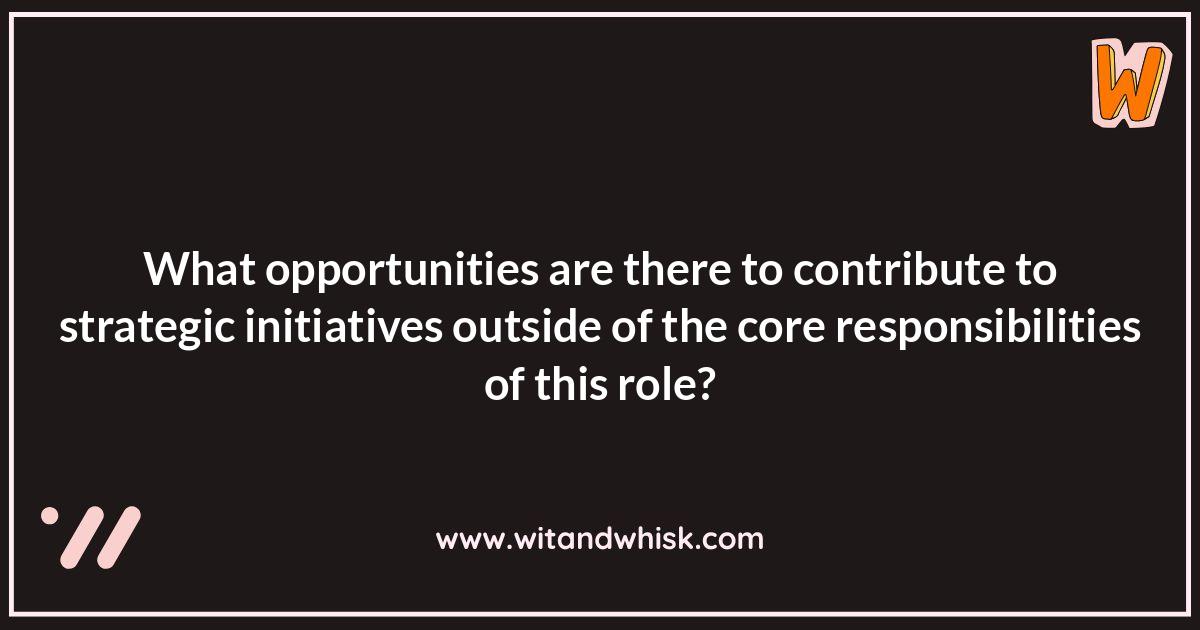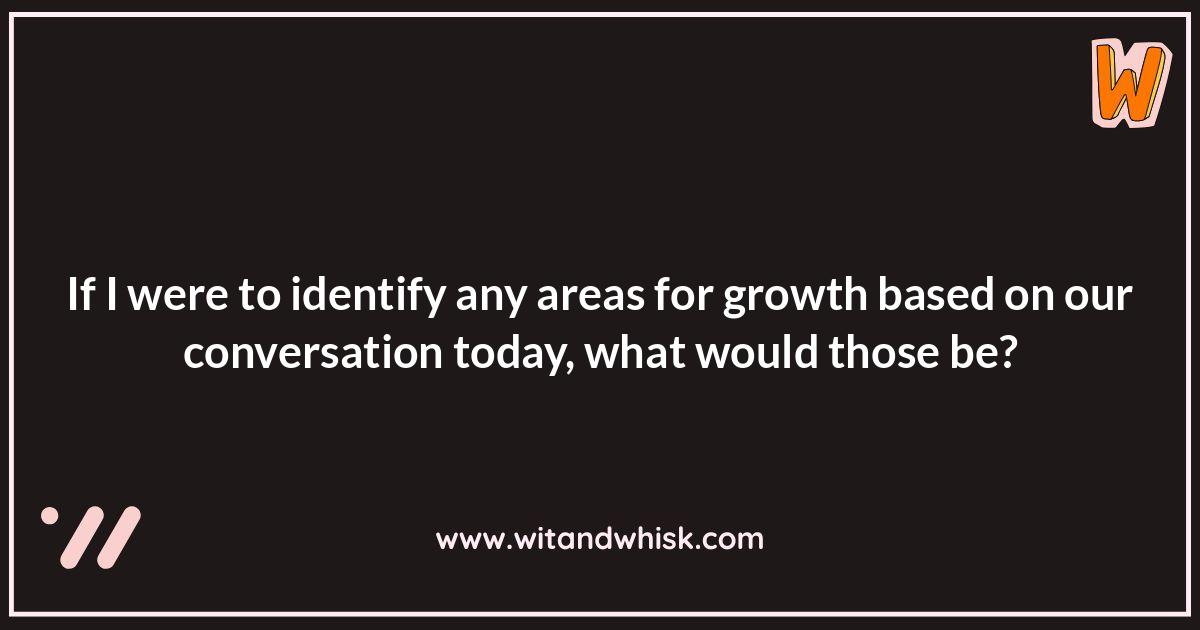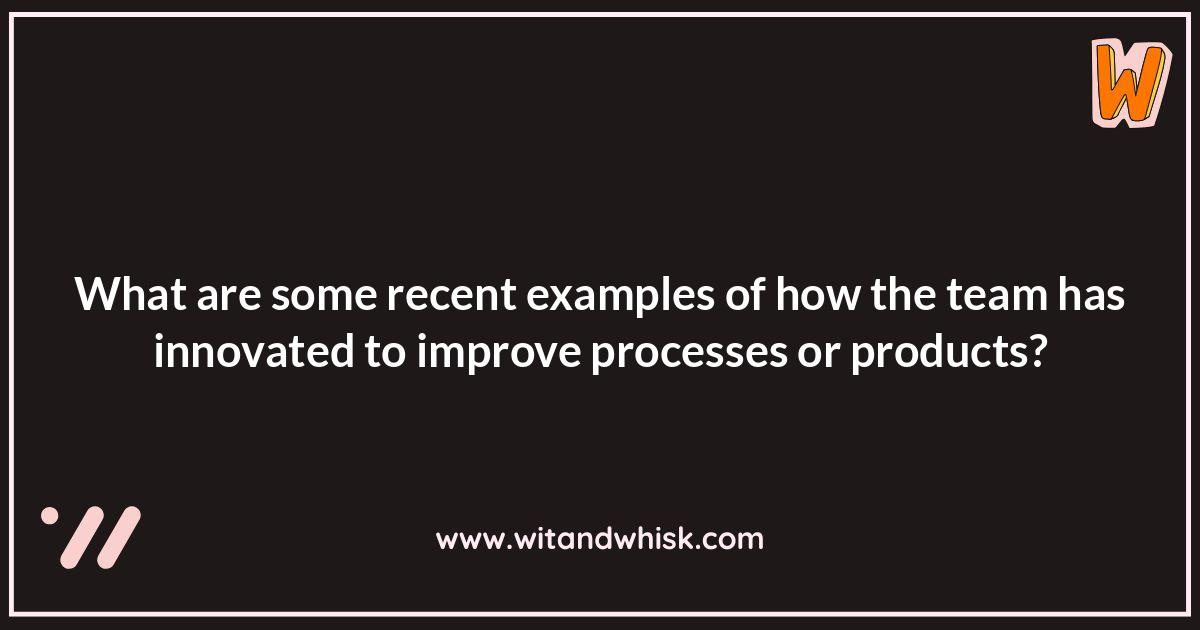150 Best Questions to Ask After an Interview Land Your Dream Job
So, you’ve just finished an interview – congrats! But the conversation shouldn’t end there. The questions *you* ask can be just as crucial as the answers you gave.

Don’t let that opportunity slip away! Asking insightful questions after an interview demonstrates your engagement and genuine interest in the role.
We’ll equip you with a powerful arsenal of questions to ask after an interview that will leave a lasting positive impression and help you determine if the job is truly the right fit for you.
Best Questions to Ask After an Interview Land Your Dream Job
- What does a typical day or week look like in this role?
- What are the biggest challenges someone in this position might face?
- What are the key priorities you’d like me to focus on in the first 3–6 months?
- How will success be measured in this role?
- Are there any major projects the person in this position would immediately be involved with?
- Can you tell me more about the team I’d be working with?
- How would you describe the company culture here?
- How do teams typically collaborate — in person, remotely, or hybrid?
- What’s your favorite thing about working here?
- How does the team celebrate wins or recognize accomplishments?
- What opportunities for professional development or advancement are available?
- How do you support employee growth within the company?
- Are there mentorship or training programs in place?
- What’s the typical career path for someone in this role?
- How does the company invest in its employees’ long-term success?
- What would you want me to accomplish in my first 30, 60, and 90 days?
- How often do you give performance feedback?
- What does onboarding look like here?
- Is there anything in my background that gives you pause or that I could clarify?
- Are there any concerns I could address to strengthen my candidacy?
- Where do you see the company in the next 3–5 years?
- How has the company adapted to recent industry changes or trends?
- What are some upcoming initiatives or goals you’re excited about?
- What are the biggest opportunities the team is working toward right now?
- How does leadership communicate vision and updates to the broader team?
- Is there anything else you need from me at this point?
- What are the next steps in the hiring process?
- When can I expect to hear back about a decision?
- Is there anything I could do or provide that would be helpful after this interview?
- Do you have any hesitations about my fit for the role that I could clarify?
Crafting Interview Questions: Showcasing Your Engagement
Don’t just sit there silently after the interviewer asks if you have questions! Thoughtful questions showcase your genuine interest and engagement. Prepare insightful inquiries demonstrating you’ve researched the company and are thinking about your potential contribution. This is your chance to shine and leave a lasting, positive impression.
- What opportunities are there to collaborate with other teams or departments?
- How does the company foster innovation and encourage employees to contribute new ideas?
- Can you describe a recent project the team completed and what you learned from it?
- What metrics are used to evaluate success in this role, beyond the typical performance reviews?
- How does the company support professional development and continuous learning for its employees?
- What are the biggest challenges facing the company/department in the next 6-12 months?
- What is the typical career trajectory for someone starting in this position?
- How does the company handle internal promotions and transfers?
- What is the company’s approach to employee recognition and rewards?
- Are there any employee resource groups or affinity groups within the company?
- What are some of the unwritten rules or cultural norms that are important to understand?
- How is feedback typically given and received within the team?
- What tools or technologies does the team primarily use?
- What opportunities are there to present my work or ideas to a wider audience?
Thought-Provoking Questions After Interview: Demonstrating Initiative
Asking insightful questions after an interview showcases initiative and genuine interest. Instead of generic inquiries, pose questions that demonstrate you’ve considered the role’s challenges and opportunities. Ask about team dynamics, upcoming projects, or the company’s vision. Thoughtful questions leave a lasting positive impression and highlight your proactive nature.

- What opportunities are there to contribute to strategic initiatives outside of the core responsibilities of this role?
- How does the company measure and value non-technical skills like communication and teamwork?
- What are the company’s core values, and how are they reflected in day-to-day operations?
- What are the biggest misconceptions people have about working at this company, and what’s the reality?
- How does the company ensure that remote or hybrid employees feel connected and engaged?
- Could you share an example of a time the company adapted to a significant market change?
- What resources are available to help employees stay abreast of industry trends and emerging technologies?
- What is the company’s philosophy on experimentation and learning from failures?
- How does the team celebrate successes, both big and small?
- What opportunities are there to mentor or coach other employees?
- How does the company approach diversity and inclusion beyond just hiring practices?
- What are some of the long-term goals the company is striving towards?
- If you could change one thing about the company, what would it be and why?
- What advice would you give to someone starting in this role to be successful?
- How does the company encourage employees to give back to the community?
Strategic Inquiries Post-Interview: Gauging Company Culture Fit
So, the interview’s done! Now’s your chance to shine. Ask questions that reveal the *real* company culture. Inquire about team dynamics, work-life balance, or how the company supports employee growth. This shows you’re not just looking for a job, but a place where you genuinely fit and can thrive.
- What opportunities are there to socialize with colleagues outside of work-related projects?
- How would you describe the level of autonomy given to employees in this role?
- What’s the company’s policy on flexible work arrangements, and how widely is it adopted?
- How does the company handle disagreements or conflicts between team members?
- What makes someone successful here beyond just hitting their targets?
- Can you describe the leadership style of the person I’d be reporting to?
- What are some of the common career paths of people who have left this company?
- How does the company support employees’ mental and physical wellbeing?
- What opportunities are there to influence company decisions or policies?
- What types of personality traits tend to thrive in this work environment?
- How does the company celebrate individual and team contributions?
- What’s the general attitude toward taking risks and trying new things?
- How does the company ensure that all employees feel heard and valued, regardless of their background?
- Could you describe a time when the company went above and beyond to support an employee?
Asking About Next Steps: Questions After Interview for Clarity
After showcasing your skills, clarity is key! Inquire about the role’s progression and team integration. “What are the next steps in the hiring process?” and “When can I expect to hear back?” show genuine interest. Understanding the timeline and future interactions demonstrates your proactive approach and helps manage your expectations.
- Beyond the timeline, what key milestones need to be achieved before a decision is made?
- What does the ideal candidate’s first week/month look like in terms of onboarding and initial responsibilities?
- What is the communication style used to inform candidates of the hiring decision (e.g., phone call, email)?
- Are there any additional materials (portfolio pieces, references) that would be helpful for my application?
- Who will be involved in the final decision-making process, and what are their priorities?
- What are the biggest priorities for the team in the next quarter, and how would this role contribute?
- Is there anything else I can clarify or elaborate on regarding my skills or experience to aid in your decision?
- How does the company handle background checks and what is the typical timeframe for that process?
- What are the expectations for the selected candidate’s start date, and is there any flexibility?
- Assuming I progress to the next stage, what should I expect in terms of format and focus of that interview?
- Considering the role’s responsibilities, what are the most important qualities you’re seeking in a successful candidate?
- Would it be appropriate to send a thank-you note, and is there a preferred method for doing so?
- What are the potential challenges or roadblocks the chosen candidate may face in the first few months?
- What specific training or resources will be provided to help the new hire succeed in this role?
Questions After Interview: Addressing Concerns and Seeking Feedback
Asking insightful questions after an interview demonstrates your genuine interest. Tactfully address any concerns you sense the interviewer might have. Inquire about the next steps and the timeline for a decision. Finally, consider asking for feedback on your interview performance – it shows a commitment to growth, even if you…

- If I were to identify any areas for growth based on our conversation today, what would those be?
- Are there any hesitations or concerns you have about my qualifications that I can address now?
- Based on this interview, what specific skills or experiences do you believe would be most valuable in this role?
- Knowing the team dynamics, what kind of personality or work style do you think would best complement the existing members?
- If you were in my shoes, what would you focus on learning or developing in the coming weeks to prepare for this role?
- Are there any gaps in my understanding of the company’s mission or values that I should clarify?
- What’s the most critical skill a new hire needs to develop quickly to overcome the initial learning curve?
- What is the company’s plan to help new hires overcome the challenges in the first month?
- What are the common misconceptions about the role, and how can a new hire avoid them?
- How can I demonstrate my commitment to continuous improvement and professional development if hired?
- What opportunities are there to shadow current employees or participate in informational interviews to learn more about the company’s operations?
- What’s one thing this team does exceptionally well, and how can a new member contribute to maintaining that strength?
- Are there any upcoming changes within the team or department that might impact the role’s responsibilities?
- What are some of the key performance indicators (KPIs) used to measure success in this role beyond the initial probationary period?
- What advice would you give someone to quickly integrate into the team and build strong working relationships?
Impactful Questions Following Interview: Highlighting Your Value
Don’t just say “thank you” after an interview! Asking insightful questions demonstrates genuine interest and allows you to subtly highlight your value. Frame questions around company challenges or future goals, showcasing your understanding and hinting at how your skills could contribute to their success. It’s your final chance to impress!
- If selected, how can I best support the team’s current momentum and contribute to its future success?
- Knowing my background, are there any specific projects or initiatives where you envision me quickly making a significant impact?
- What unique perspectives or skills do you believe I bring to the table that could benefit the team in unexpected ways?
- How does this role contribute to the company’s broader innovation strategy, and what opportunities exist for creative problem-solving?
- What are the team’s strategies for staying ahead of the curve in this rapidly evolving industry?
- What opportunities exist for me to leverage my existing network to benefit the company?
- Beyond the job description, what are some of the less obvious ways someone can excel in this role and exceed expectations?
- What’s the biggest area where the team could use some outside-the-box thinking right now?
- How does the company measure the impact of individual contributions on overall company goals?
- What opportunities are there to mentor junior colleagues and contribute to their development?
- What is the company’s commitment to sustainability and social responsibility, and how can I contribute?
- Are there any internal initiatives or programs that I could contribute to outside of my core responsibilities?
- What role does data play in informing decision-making within the team and how can I contribute to that process?
- What are the avenues for employees to share their expertise and insights with the wider industry?
Questions to Ask After Interview: Understanding Growth Opportunities
Beyond salary and benefits, understanding growth potential is key. Inquire about opportunities for professional development, mentorship programs, or internal mobility. Asking about the company’s investment in employee growth demonstrates your ambition and helps you assess whether the role aligns with your long-term career goals.
- Beyond formal training, what informal learning opportunities are available within the team or company?
- What skills or technologies will become increasingly important in this role over the next few years?
- How are employees encouraged to pursue cross-functional projects or assignments?
- What are some examples of employees who have successfully transitioned into different roles within the company, and what steps did they take?
- Does the company offer tuition reimbursement or support for external certifications or courses?
- What opportunities are there to attend industry conferences or workshops to expand my knowledge and network?
- How does the company identify and develop future leaders?
- Are there mentorship programs available to help employees reach their full potential?
- What resources are available to help me develop my leadership and management skills?
- How does the company encourage employees to stay up-to-date on the latest industry trends?
- What opportunities exist for international assignments or collaborations?
- What is the company’s approach to succession planning, and how can I position myself for future advancement?
- Beyond promotions, how does the company recognize and reward employees who demonstrate significant growth and development?
- Are there opportunities to take on stretch assignments or lead special projects to broaden my skill set?
Smart Questions Post-Interview: Securing Your Candidacy
Asking smart questions post-interview shows genuine interest and strategic thinking. Inquire about team dynamics, upcoming projects, or opportunities for professional development. This demonstrates your proactive nature and helps you assess if the role truly aligns with your goals, solidifying your candidacy beyond your initial qualifications.

- What are some recent examples of how the team has innovated to improve processes or products?
- Beyond the initial onboarding, what ongoing support is provided to help employees adapt to changes within the company?
- How does the company strike a balance between individual contributions and collaborative teamwork?
- What are the biggest opportunities for this role to make a tangible difference in the next year?
- Could you describe a situation where the company adjusted its strategy based on employee feedback?
- What are the avenues for internal communication and how are important announcements typically shared?
- How does the company encourage employees to take ownership of their work and contribute to decision-making?
- What initiatives are in place to promote a culture of inclusivity and belonging within the team?
- How does the company define success, and what metrics are used to track progress towards those goals?
- What’s the biggest learning opportunity for someone entering this role, and how can they best leverage it?
- How does the company encourage knowledge sharing and collaboration across different departments?
- Are there opportunities to participate in employee-led initiatives or committees?
- How does the company approach performance management and provide feedback for continuous improvement?
- What is the company’s approach to work-life integration, and what resources are available to support employees?
- How does the company respond to employee suggestions for improvement, and how are those suggestions implemented?





